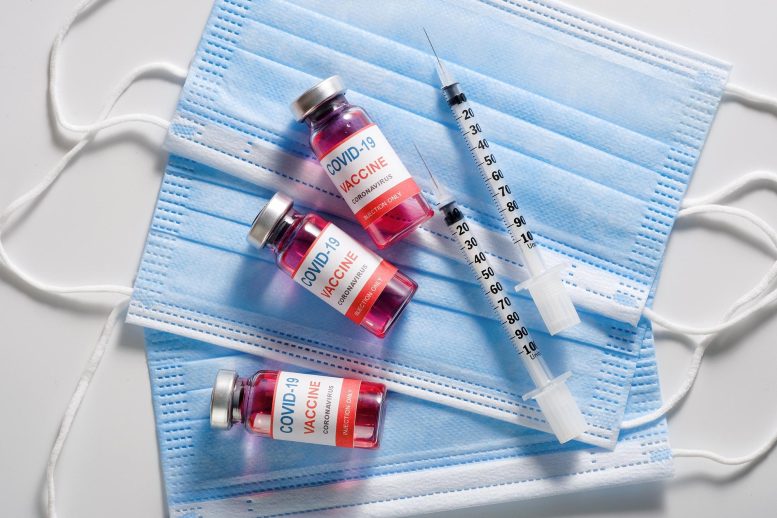The Omicron Dilemma
"We found the large number of mutations of the Omicron variant did cause significant changes of neutralization sensitivity against people who had already had COVID. However, the average ED50 [protection level] against Omicron is still higher than the baseline, which indicated there is still some protection effect [that]can be observed.""This study verifies the enhanced immune escape of [the] Omicron variant, which sounds the alarm to the world and has important implications for public health planning and the development of matching strategies."Youchun Wang, senior research fellow, National Institutes for Good and Drug Control, China
 |
| Tube samples of Omicron further propose its “significant” capability to evade protection from previous infection and, potentially, even third vaccine dose. |
Globally, countries are tightening border controls in an effort to attempt the slowing down of the spread of the Omicron variant. A report from the Nigeria Centre for Disease Control advised that the variant had been circulating weeks earlier than the heads-up from South Africa a week ago. Travellers to Nigeria from an unidentified country appear to have brought the variant with them, given the results of retrospective tests confirming the strain in COVID-19 infectons from international travellers.
Almost immediately South Africa made its announcement of the new strain, travel from and to the country was curbed, mostly as a result of uncertainty of how readily the variant can spread, and whether crucially, it is capable of evading vaccine protection. Data arriving from other countries lost no time in indicating the variant was circulating before officially identified in South Africa, as evidenced by cases appearing around the world, with numbers anticipated to increase exponentially.
Australia and Denmark reported infected visitors. In the United States a milestone was again reached with the report of 800,000 coronavirus deaths attributed to the virus. A rate more than three times higher than Canada, and 11 times more than Japan. Japan had already barred all new foreign entrants, yet it has reported its second case of the variant, spurring it to expand travel curbs.
Japan, Portugal and Sweden have been added to travel restrictions announced by Hong Kong. Flights with Hong Kong and South Africa have been suspended in Uzbekistan, while Malaysia barred travellers from eight African countries, planning to add Britain and the Netherlands to its banned list. Israel has announced that Britain and Denmark have been added to its "red" list of countries Israelis may not visit.
"Blanket travel bans will not prevent the international spread and they place a heavy burden on lives and livelihoods" chided the World Health Organization. The WHO also advised those whose health is less than optimal, those who are known to be at risk of infection, and those 60 years and over along with the unvaccinated to postpone any travel plans for the near future.
According to early research in a new study, one of the first to be peer-reviewed, the Omicron variant "exceeds" all other strains in its observed capacity to evade the antibodies produced by previous infection or vaccination. Published in the journal Emerging Microbes & Infection, the study found that people with this level of immunity may have "stronger than basic" defence against the mutated virus.
And while a third -- booster -- dose of a vaccine may support and enhance this immunity, more research, according to the study, is required to determine the extent to which proceeding in this direction may prove effective. The study confirms early reports out of South Africa that Omicron is able to evade immunity. The antibodies providing protection through previous infection and vaccination begin to wane in effectiveness over a period of six months; a gift to the predatory variant.
Comparing in-vitro Omicron samples to 28 serum samples from patients recovering from the original coronavirus strain enabled the team to arrive at its conclusions. Four strains which the WHO considers to be "of concern", such as the Delta variant and two "of interest" were also analyzed. Despite which real-world settings in further research is required to fully grasp Omicron's ability to evade antibodies.
The research was conducted in vitro (outside a living organism) with the use of pseudotyped (manufactured) viruses. However as researchers point out, previous studies conducted similarly found in-vitro analysis a measure of "good correlation" while current vaccine literature established "that the in-vitro neutralization assays are good predictors of vaccine protection efficacy and real world vaccine effectiveness".
Leading the study team to feel confident that its data "may well predict the potential reduction of vaccine protection against the new Omicron variant."
 |
| Although the new variant appears to be much more transmissible, scientists in South Africa said on Friday they have seen no signs that it causes more severe illness than the other strains. GETTY |
Labels: COVID19, Immunity Evasion, Infectiousness, Omicron, Variant

0 Comments:
Post a Comment
<< Home